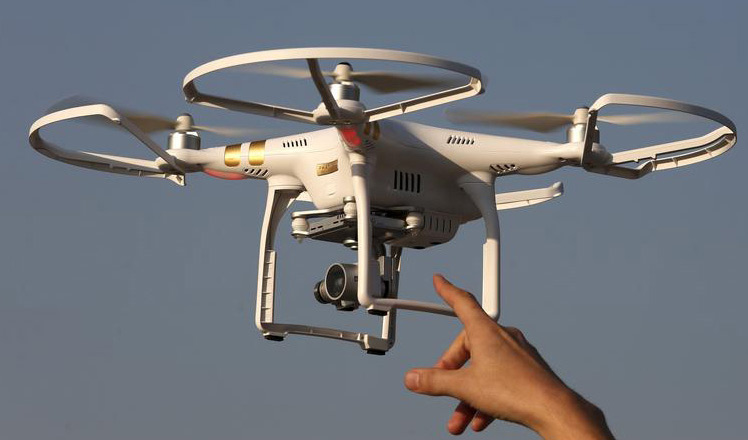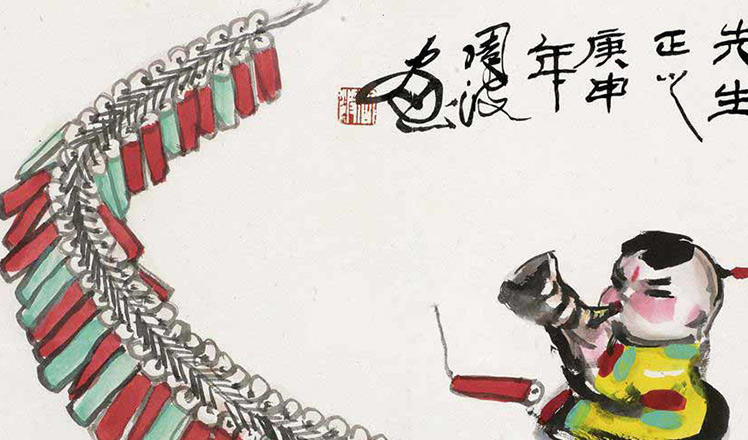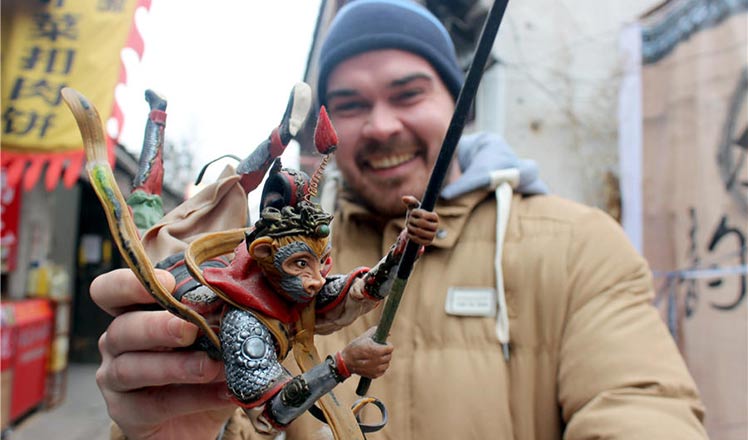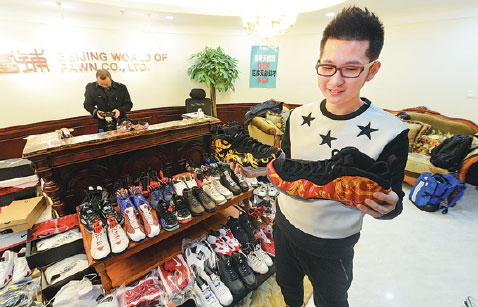Pawnshops offer alternative services
Updated: 2016-01-26 08:08
By Li Yang in Chengdu(China Daily)
|
||||||||
From laptop storage to jewelry evaluation, shops give more than quick cash
College students and their teachers in need of quick cash or secure storage for their belongings are turning to pawnbrokers for low-cost loans and as a safe haven for their cars and electronics.
A junior, surnamed Ma, from Chengdu, Sichuan province, offered his laptop, for which he paid about 6,800 yuan ($1,033), to a pawnshop near his school. The shop's electronics appraiser, Su Xu, offered a 2,800 yuan loan. Ma only accepted 500 yuan.
In a month, when he returns with the receipt and 500 yuan, he need only pay an extra 21 yuan, 4.2 percent of the loan, according to China's pawn industry rules, to retrieve his computer.
"The extra money is like a safe custodian fee," Ma said. "I need not bring the computer with me for the crowded train journey home during the Spring Festival rush, and I do not want to leave it in my dorm either, for safety concerns, as the campus is almost empty for a month during the winter vacation."
Ma shared his pawn story on his micro blog, and many college students, whose hometowns are far from their schools, commented about how it was a clever and practical solution.
Xie Juanjuan, a pawnshop manager on Wanhe Road in Chengdu, told West China Metropolis Daily that her shop loans money to students and their teachers, who obtain loans on their cars during their school breaks.
"We get business from college students before their summer or winter vacations. They regard pawnshops as a safe place," Xie said.
Not everything is exchangeable for quick cash. Su's pawnshop won't accept items for which it cannot determine a value, say a set of cookers which an owner claims are "made with advanced technology", for example. "For electronic products, the pawn period should not exceed three months, in most cases, because digital gadgets develop so fast that if their owners cannot redeem them, it would be very difficult for the pawnshops to resell them," Su said.
The first pawnshop on the Chinese mainland was opened in Chengdu in 1987 after China's reform and opening up in the late 1970s. Currently, there are 343 pawnshops in Sichuan, with most focusing on real estate and cars. Personal, everyday items account for very little of the business.
Zhang Zhen, a pawn broker in Chengdu, said his pawnshop has reliable measures in place to ensure the safety of pawned items, which run the gamut of personal belongings. When an owner fails to return for an item, it's sold in the shop.
"It is much easier to find buyers for electronic products, gold and watches than luxury women's handbags," he said.
Jewelry, real estate and automobiles are popular pawn items, and their owners use pawnshops as a means of obtaining money quickly for pressing needs. "If their owners fail to redeem these loans, it is easy for pawnshops to resell them again in the market," Xie said.
An amateur jade collector, surnamed Zhang, in his mid-40s in Chengdu, said he often goes to Xie's pawnshop to look for "quality but cheap" jade. He bought a pair of jadeite pendants for about 7,000 yuan.
"Pendants of that quality are priced at tens of thousands of yuan at the department store. It is a good deal," Zhang said. "More importantly, the appraisers in the pawnshops have already helped to identify the authenticity and quality of the jade, which is a very professional test for amateurs in the jade market."
|
A Beijing resident pawned his collection of basketball boots for the down payment on an apartment he bought in the capital. Provided to China Daily |
- A glimpse of Spring Rush: little migrant birds on the way home
- Policy puts focus on genuine artistic students
- Police unravel market where babies are bought, sold as commodities
- More older pregnant women expected
- Netizen backlash 'ugly' Spring Festival Gala mascot
- China builds Mongolian language corpus
- 2 Chinese nationals killed, 1 injured in suspected bomb attack in Laos
- New York, Washington clean up after fatal blizzard
- 'Plane wreckage' found in Thailand fuels talk of missing Malaysian jet
- Washington shuts down govt, NY rebounds after blizzard
- 7 policemen, 3 civilians killed in Egypt's Giza blast
- Former US Marine held in Iran arrives home after swap

 Drone makers see soaring growth but dark clouds circle industry
Drone makers see soaring growth but dark clouds circle industry China's Zhang reaches Australian Open quarterfinals
China's Zhang reaches Australian Open quarterfinals
 Spring Festival in the eyes of Chinese painters
Spring Festival in the eyes of Chinese painters
 Cold snap brings joy and beauty to south China
Cold snap brings joy and beauty to south China
 The making of China Daily's Tibetan-style English font
The making of China Daily's Tibetan-style English font
 First trains of Spring Festival travel depart around China
First trains of Spring Festival travel depart around China
 Dough figurines of Monkey King welcome the New Year
Dough figurines of Monkey King welcome the New Year
 Ning Zetao, Liu Hong named China's athletes of the year
Ning Zetao, Liu Hong named China's athletes of the year
Most Viewed
Editor's Picks

|

|

|

|

|

|
Today's Top News
National Art Museum showing 400 puppets in new exhibition
Finest Chinese porcelains expected to fetch over $28 million
Monkey portraits by Chinese ink painting masters
Beijing's movie fans in for new experience
Obama to deliver final State of the Union speech
Shooting rampage at US social services agency leaves 14 dead
Chinese bargain hunters are changing the retail game
Chinese president arrives in Turkey for G20 summit
US Weekly

|

|









